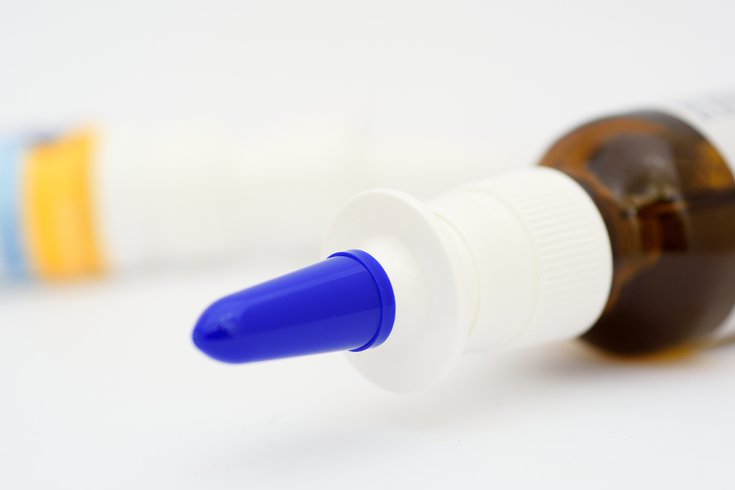
October 01, 2021
 Source/Image licensed from Ingram Image
Source/Image licensed from Ingram Image
In a study of 72,147 patients with COVID-19, researchers found people who regularly used steroid nasal sprays were 22% less likely to be hospitalized with COVID-19.
People who have been regularly using steroid nasal sprays before getting COVID-19 are less likely to develop severe cases, according to new data.
But Cleveland Clinic researchers emphasized that their findings do not mean intranasal corticosteroids should be used to treat or prevent COVID-19. Public health officials continue to stress that vaccines offer the best protection against COVID-19.
Rather, the researchers said their findings demonstrate the important role the nose plays during an infection. And they encouraged people who take nasal sprays for chronic conditions to continue doing so as needed.
Intranasal corticosteriods are inhaled to help relieve a stuffy nose and other nasal irritations from allergies and other conditions. The study examined patients who had been using prescription sprays, though there are some available over the counter, including Nasacort, Flonase and Rhinocort.
The nasal spray may suppress the viral load and expression of the ACE2 receptor – which allows the coronavirus to enter cells and replicate, researchers theorize.
"The nose, in this instance is the gateway to our bodies, allowing the virus to enter and replicate within," said Dr. Joe Zein, a pulmonologist at the Cleveland Clinic. "The use of intranasal corticosteroids may help disrupt that gateway."
The researchers found prescription steroid nasal spray users were 22% less likely to be hospitalized with COVID-19 than people who don't use them. They were 23% less likely to be admitted to the intensive care unit and 24% less likely to die from COVID-19 during hospitalization.
"Our findings are particularly significant, as decreased COVID-19 hospitalizations, ICU admissions and mortality could alleviate the strain on health care systems with limited resources across the globe, especially in developing countries where there is limited access to vaccines and where mutations in SARS-CoV-2 have emerged," said Ronald Strauss, director of the Cleveland Allergy and Asthma Center.
The researchers followed 74,147 adults who tested positive for COVID-19 between April 1, 2020 and March 31. All were patients within the Cleveland Clinic health system. Overall, 12,608 were hospitalized, 2,935 were admitted to the ICU and 1,880 died during hospitalization. About 14% of the patients were receiving intranasal corticosteroids before their infections.
Future studies are needed to confirm their findings, which were published in the Journal of Allergy and Clinical Immunology: In Practice
Currently, treatments for COVID-19 are limited.
The U.S. Food and Drug Administration has approved the antiviral drug remdesivir for adults and certain pediatric patients who have been hospitalized with COVID-19.
Several monoclonal antibody treatments, including Regeneron's COVID-19 cocktail, also are available under emergency use authorization for patients with mild to moderate COVID-19 who are at high risk of hospitalization.
Several companies, including Pfizer and Merck, are testing antiviral pills aimed at shortening the duration of illness and reducing the risk of hospitalization when taken shortly after diagnosis – just like Tamiflu does with influenza.